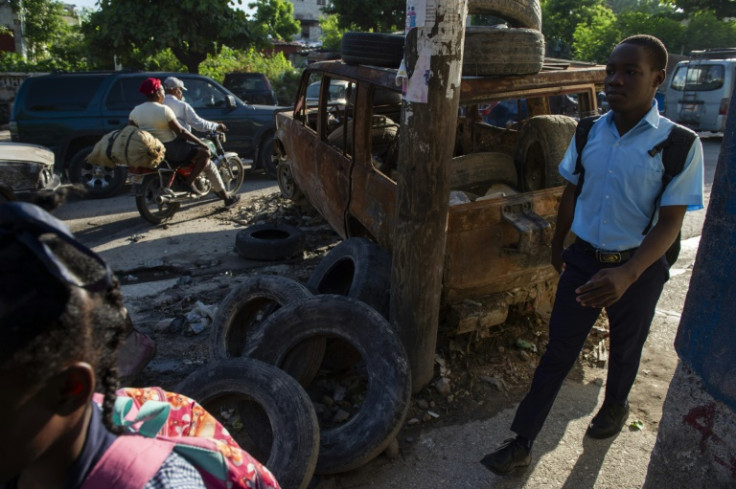
The United Nations Security Council on Wednesday discussed transforming a current security mission in Haiti into a formal peacekeeping operation as gangs in the country continue to escalate violence. While most diplomats showed support for the shift, Russia and China expressed opposition, complicating the potential move.
Haiti's security crisis worsened dramatically in recent weeks, forcing the suspension of U.N. humanitarian flights and a 30-day ban on U.S. commercial air travel to Haiti due to gunfire targeting airlines coming from the United States.
Meanwhile, 5.4 million people in Haiti are facing hunger, with some areas experiencing famine-like conditions. Recent reports indicate that nearly 700,000 Haitians have been displaced due to ongoing violence, with over 3,600 people killed since the beginning of the year. This month, a brutal gang attack in central Haiti left at least 70 people dead, including children.
In a dramatic political move, Haiti's presidential council has dismissed Prime Minister Garry Conille amid escalating instability, appointing businessman Didier Fils-Aimé as his replacement.
Haitian leaders have repeatedly called for the Multinational Security Support (MSS) mission, which began partial deployment in June, to be upgraded into a fully funded peacekeeping force, according to Reuters.
The United States and Ecuador had proposed converting the MSS into a peacekeeping mission in early September, but the push was abandoned in the final resolution renewing the MSS mandate due to resistance from Russia and China, both veto powers in the Security Council.
Both nations argued that Haiti's security situation did not yet meet the conditions for a peacekeeping force and questioned the legitimacy of the Haitian government, citing ongoing internal disputes and an absence of elections.
Despite this, most other members of the Security Council were open to or supportive of the proposal. Haiti's Ambassador to the UN, Antonio Rodrigue, highlighted the current mission's limited effectiveness, citing the mission's insufficient resources—both financial and logistical—to tackle the scale of the violence. He highlighted that the MSS had only deployed about 400 troops, far short of the 3,100 promised by various countries, and its funding was less than $100 million.
Rodrigue further urged that any new peacekeeping force learn from the failures of past international interventions in Haiti, particularly their involvement in human rights abuses and the 2010 cholera outbreak.
Jean "Bill" Pape, a prominent Haitian infectious disease expert, spoke of the escalating crisis within the country. He described how his health organization had seen a significant number of resignations, as more than two-thirds of his employees were forced to flee. "If nothing is done, the alternative will be a massive genocide," Pape warned, calling on the international community to intervene to prevent further bloodshed.
© 2025 Latin Times. All rights reserved. Do not reproduce without permission.






